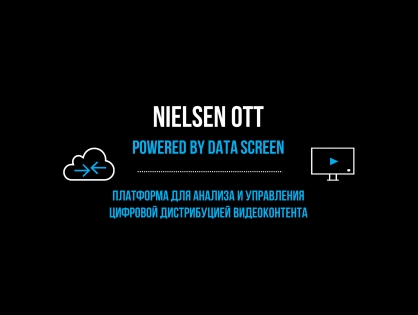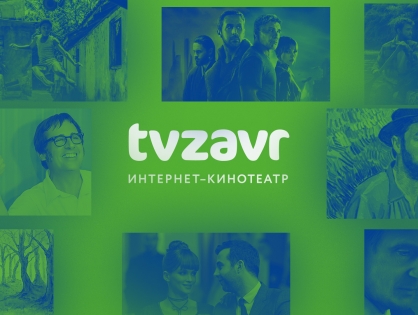 Viktor Chekanov, CEO of Megogo video service in Russia, and Dmitry Pashutin, head of analytic department of media services of Yandex, are remembering first career steps in the media market, analyzing the current situation in the video segment, and, of course, talking about the future in a friendly chat.
Viktor Chekanov, CEO of Megogo video service in Russia, and Dmitry Pashutin, head of analytic department of media services of Yandex, are remembering first career steps in the media market, analyzing the current situation in the video segment, and, of course, talking about the future in a friendly chat.
Viktor:
– Hello, my name is Victor Chekanov; I am the head of Megogo video service in Russia. And today, especially for RUVOD, we met for an interview with Dmitry Pashutin. Dima has a very cool experience; he worked for the advertising Agency, and online cinema. He now works in Yandex, in the direction of the media services. Dima, please, tell us about your career path.
Dmitry:
– I started my career path many years ago in an advertising Agency, doing Analytics and media planning. Then I worked in one big TV seller; also I was the head of the Department of media Analytics. We were engaged in forecasting of television ratings, and consulting of TV channels. There I learned how television broadcasting, network, ratings and popularity of the content are arranged. Then I worked in ivi for almost 6 years. Now I work in the division of media services at Yandex. The media services are Kinopoisk, Yandex.Music, Yandex.Afisha and TV Program.
Viktor:
– If you compare the path that you imagined when you finished school, University, and the real one you got – it turned out better or worse?

Dmitry:
– Great question! I think, as I planned. I studied statistics, “Advertising” specialization. In my fourth year I got a job in an advertising Agency, and dreamed to build a career in this industry. Then I went to army for 2 years and decided that I will never work in advertising and in this industry in general. I was tired of it. But then I began to write dissertation, and I had to gather the material. This is how I got to Video international. And I really liked it, because it turned out that’s exactly what I studied. Numbers and media. Exactly what I wanted.
Viktor:
– Since the beginning of online cinemas in Russia and till now, the attitude of lawmakers toward us has changed radically. At first they did not notice us, and then they notice. In your opinion, what is happening at the law level in relation to video services; is it helping or not? Is it really bringing order to the market? Or stops services from further developing?
Dmitry:
– I think that often intervention of government in a particular industry is not a driver of development. And I think that legal services, cinemas, film distributors, video resources, copyright holders are able to self-regulate and negotiate with each other to build this industry without any interference.
 Viktor:
Viktor:
– Then what kind of government intervention should be if sometimes we ask ourselves to help us? For example, in the fight against pirates. Should it be at the law level or recommendation level?
Dmitry:
– This is a hard question, to be honest, it`s not in my competence. In my personal opinion, appearance and development of the Internet is changing the practice of copyright violations. It is believed that the Internet and globalization processes are changing the industry radically. For example, we see the change in taxi industry. The ownership of things is changing. We will own fewer things. We will not collect DVD, old Newspapers or books. Internet is changing the format of ownership, in general. Maybe we need to consider that the current structure of ownership is not compatible with the Internet. Maybe it should be some other rules of content distribution. Maybe the content needs to be available for services for less money because it is available almost everywhere. For example: the service offers its users the access to some content. And everyone including pirates posted the version of this content. But its normal sound, sound track, is available only from legal players. The user pays a legal player for a specific set of services, such as 3D or high quality. Then the economy will change a bit. May be we should reconsider trying to protect all the content. May be it sounds naive, but I think this is an area in which we need to correct the law.
Viktor:
– You’re describing one of the possible ways of further development. In your opinion, is Russian video segment developing according to the example of the West? Or going its own way?
 Dmitry:
Dmitry:
– I think this is own way. For some reasons. It is obvious that we have not matched with the West in some ways. It is clear that there is a common global model, and everyone looks there sometimes. But there are a lot of differences. For example, in 2012 at the presidential election in America Barack Obama put on Hulu a significant part of his budget. At that time I thought it is a sign, recognition of the industry. I was saying that in some years in Russia election advertising will appear on our services. And it will also be a flag that we’re going after them. But, as we know, everything went different, advertising is not appearing. This is one of the examples that we are developing differently. Another example is a subscription model of Netflix. I’m not sure that we will quickly repeat this system here because, in my opinion, one of the drivers of popularity of the service there is cost optimization of television. Netflix costs 10$ monthly. There is no such strong pay TV market in Russia. There is conditional pay TV, when they add 150-200 rubles to the bill, and you get all the channels. It’s not quite the same as to decide, pay and get a TV. So it’s different too. I think that our market is much tighter than abroad. We have many players on it.
 Viktor:
Viktor:
– Hulu and Netflix are also presented in Russia, in one way or another. Do we need to protect the market from foreign players?
Dmitry:
– It doesn`t need to protect the Russian market. I can’t think of any foreign player in the large segment, which is dominated in Russia (search, social networks, mail system). In Russia, it is quite strong market and strong players to properly compete. Same ivi, Megogo, First Channel or STS have enough competencies, they have a huge experience to fight off any service. It`s better when the regulation happens by the market. Netflix came with its 10$ and we saw the schedule, when there was growth at first, and then decrease, yet it didn`t affect others. Let them try. Maybe they will bring some benefit to the Russian market. I just don’t think it’s possible to make it that easy, without lots of hard work and taking into account the specifics of our market.
Viktor:
– And if we take the local market. Does Russia have space for one more local player?
 Dmitry:
Dmitry:
– In my opinion, the market is quite oversaturated. In the form in which it is now, the new launches are not very clear to me. In 5-6 years of development of the industry in Russia someone is starting on a quarterly basis. Closing is much less that starting. I think, there are too many players. I think there is no way to make the service, which will repeat the model of Megogo – it`s not logical. I think that there may be some details from the major players, their own views on the place of a similar service in a large ecosystem. For example, Beeline is going to launch.
Viktor:
– This is Telecom services. They already have their own subscriber base.
Dmitry:
– Yes, but the market is the same. They will come with Telecom service, but potentially will take let`s say from ivi. On the other hand, there is another feature of the Russian market – since no one closing for so long, it will be some kind of segmentation. In the States there is separation. There’s Hulu, where everything is about TV; there is Netflix, which has a lot of things; there is Amazon, which is trying to move it, trying to create own content. But still the number of services is limited. In Russia there are too many of them. I think, since no one is closing, so now they will begin to separate to different audience segments, as TV channels. There will be no services with all the content, it will be separated add-on. Amediateka is now well positioned – it’s all very clear. I think eventually everyone will stop trying to create the largest legal library. After all, five large legal libraries mean that everyone earns little on them. I think it will be some repositioning, same as TV channels.
 Viktor:
Viktor:
– According to Netflix model, when a service is gaining critical size of the audience, it begins to create its own content to hold the audience and grow it. This scheme is understandable. In your opinion, the scheme when right holders or majors are creating or thinking to create their own video services, is viable?
Dmitry:
– I don`t have definite answer to this question. It needs to see how many of such services the user can handle. If you imagine that the content is fragmented this way, than we have M majors, and N channels on the top. If you imagine that each one collects a subscription to its content, we come to packages similar to what was in cable TV. And what purchasing capacity should be, what price should be to collect something? Hard to imagine that person lives by categories of major content. The average person outside the industry don`t know who is who. Exaggerated: for user there is Disney with cartoons, only because it was “Disney Hour” on Sundays and some great releases have caught his attention; maybe later there is connection between several releases and big majors. But in general the audience doesn`t separate the industry in such way. For a person it is just a lot of services, where there are pieces of content. It is unclear for the person how content develops. And I think. It`s difficult to develop a large number of subscription services, because person still can`t pay and consume that much. Same story was with cable channels. A person can order 100 channels, but in the end, will come to stable volume of consumption. I believe that the market will regulate everything. I think the amount of the subscription services will no longer grow significantly, or be limited by small blocks of content. It will not benefit the market. It is hardly possible to develop on a limited content.
 Viktor:
Viktor:
– We’re talking a lot about video, but in Russia there is a huge market, which is Pay TV and TV in general. In your opinion, what is the future of the TV market in Russia? TV is dying or reborn? What’s next?
Dmitry:
– This is the most interesting. I want to watch this. I really don’t know what will happen. On one hand, I see the vector that is abroad – digitalization. And this applies to all media. Internet is becoming a part of other technologies such as advertising media. Internet comes to TV and allows you to develop addressable TV. It`s little bit different here, the global line is different. Television is trying to pretend that actually Internet is also a TV. I think it’s pretty weird. It turns us away from the general trend. However, it is clear that TV is not dead. There was a time when it seemed that the TV will suffer, because there are video services. They are completely different segments; they will go towards each other. If we don`t interfere, they will get closer and enrich each other. Media-consumption will be formed from feeds of TV channels and Internet. Think the most interesting part is ahead. It`s interesting to watch what Megogo makes, what Smotreshka makes, it`s interesting what`s happening on Yandex. Television won’t die, but it can’t continue to pretend that nothing is happening. Everything will change, media consumption will change. The TV program is already living another way, already the content is not coming from television to Internet. Worthy projects are appearing. We need to experiment more, try to build together an interesting industry.
Viktor:
– Dima, thank you for very interesting conversation!
Dmitry:
– Thank you. And thank you RUVOD





Отправить ответ